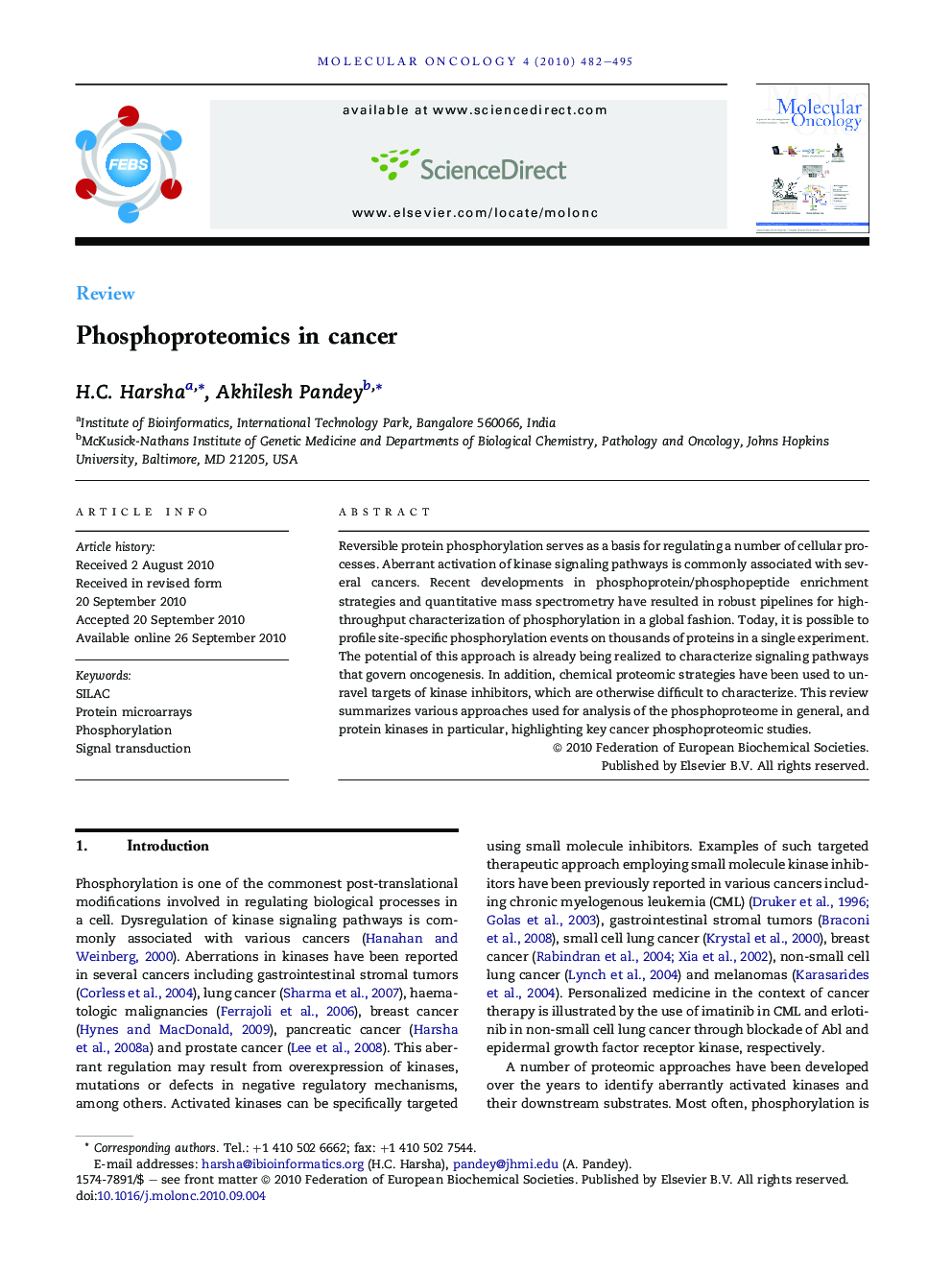| Article ID | Journal | Published Year | Pages | File Type |
|---|---|---|---|---|
| 2145869 | Molecular Oncology | 2010 | 14 Pages |
Reversible protein phosphorylation serves as a basis for regulating a number of cellular processes. Aberrant activation of kinase signaling pathways is commonly associated with several cancers. Recent developments in phosphoprotein/phosphopeptide enrichment strategies and quantitative mass spectrometry have resulted in robust pipelines for high-throughput characterization of phosphorylation in a global fashion. Today, it is possible to profile site-specific phosphorylation events on thousands of proteins in a single experiment. The potential of this approach is already being realized to characterize signaling pathways that govern oncogenesis. In addition, chemical proteomic strategies have been used to unravel targets of kinase inhibitors, which are otherwise difficult to characterize. This review summarizes various approaches used for analysis of the phosphoproteome in general, and protein kinases in particular, highlighting key cancer phosphoproteomic studies.
